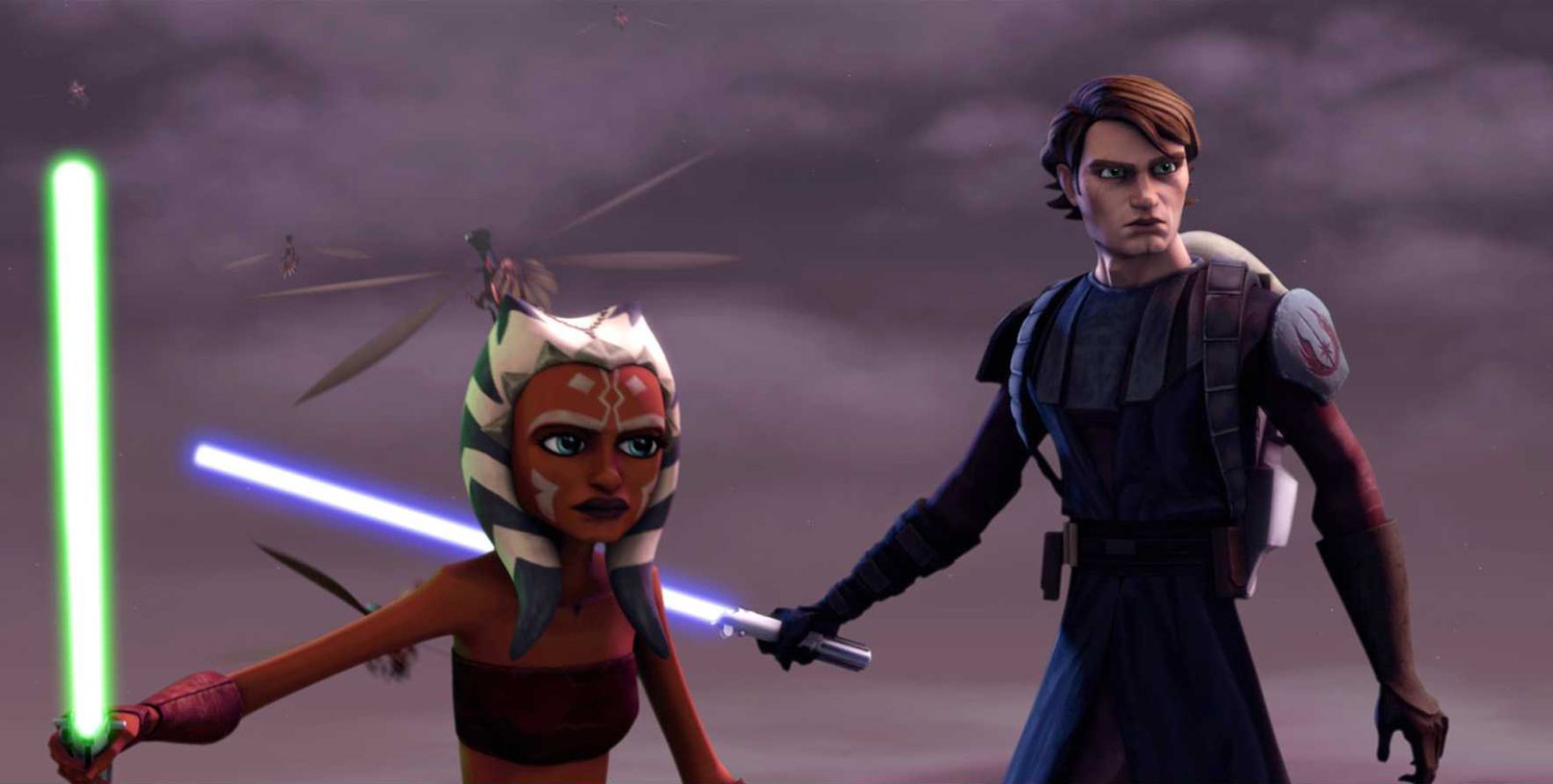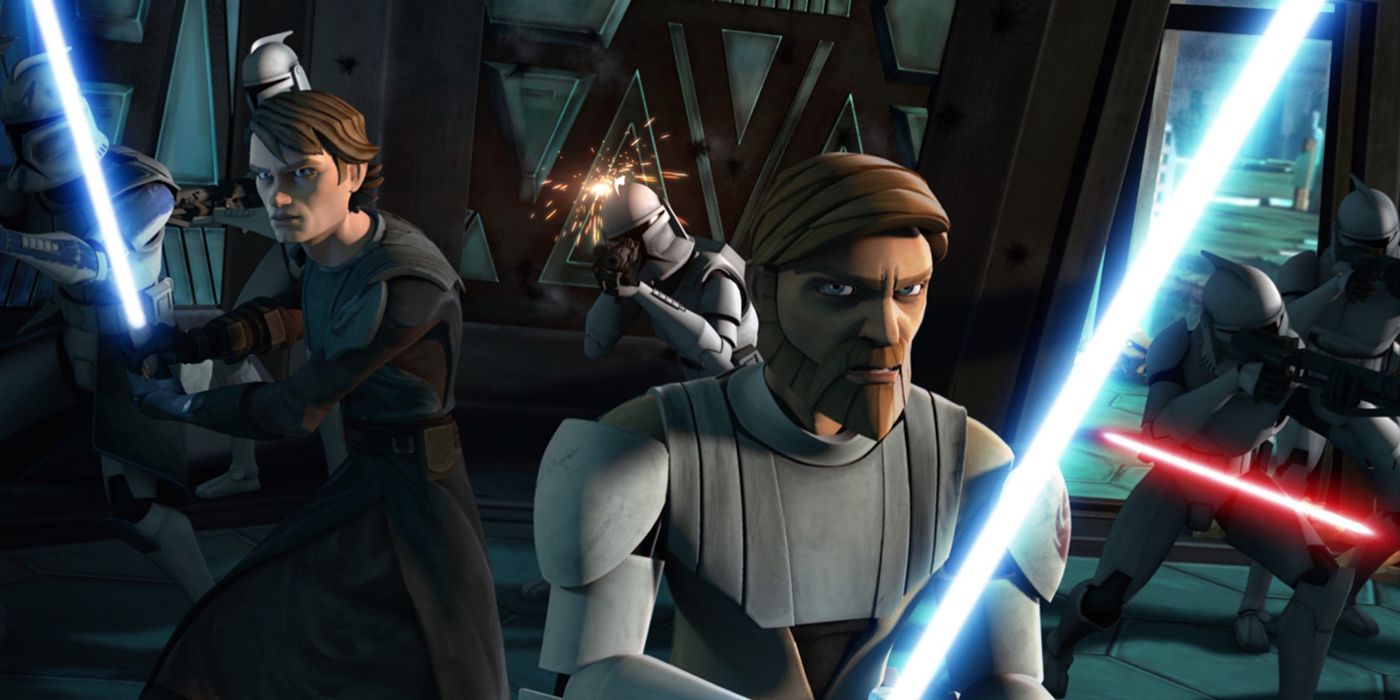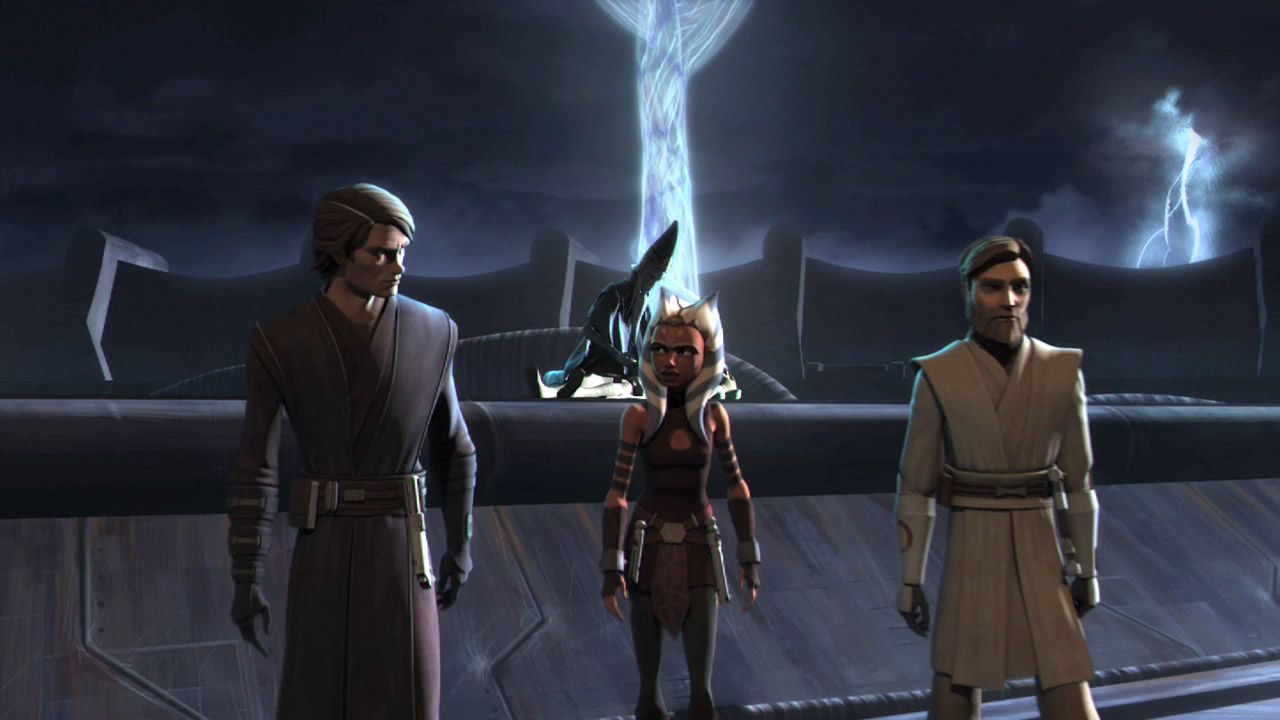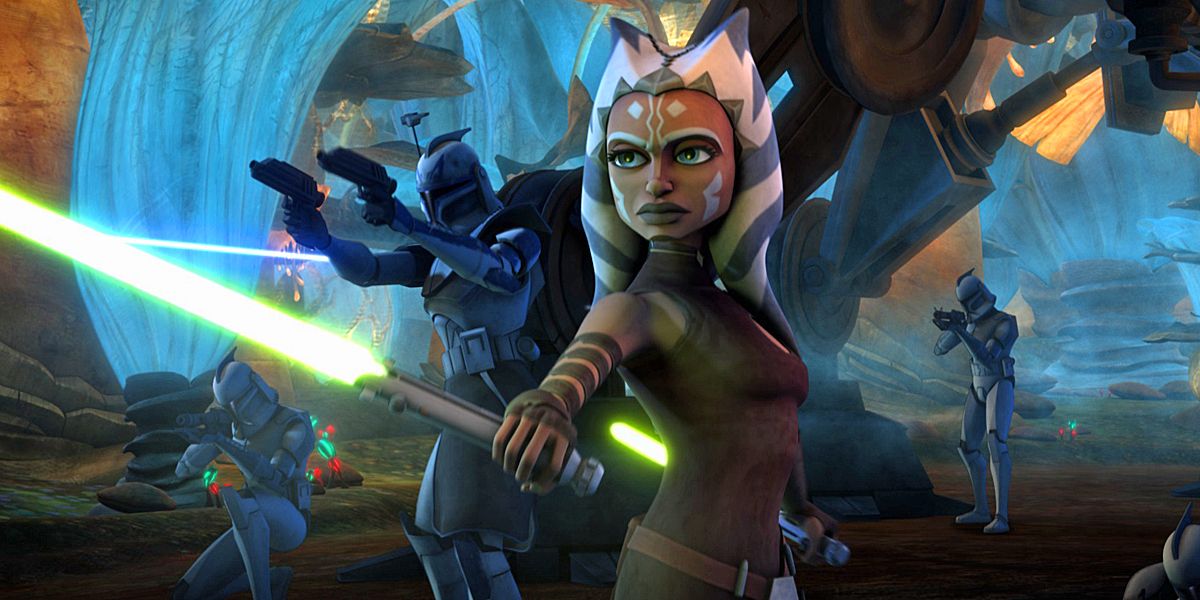This year marks the tenth anniversary of Star Wars: The Clone Wars, which premiered on Cartoon Network on Oct. 3, 2008 after receiving an animated film of the same name two months prior combining several proposed episodes into a feature-length movie. While the series has gone on to become an acclaimed, fan-favorite extension of the Star Wars universe, what may be lost on audiences today is that the animated series first aired on a time when the entire franchise was recovering from the after-effects of the Star Wars prequel trilogy which had received an overwhelmingly negative response from critics and fans alike while creator George Lucas was adamant publicly that there would be no sequel trilogy following 2005's Star Wars Episode III: Revenge of the Sith.
The long-running sci-fi franchise was at its lowest point in terms of goodwill among the fans and desperately needed something to win back their good favor while providing the franchise a new direction while its cinematic future was in doubt. Across six seasons and 113 episodes, The Clone Wars accomplished both while expanding the mythos to provide new worlds and characters that have since become some of the most beloved figures in the entire Star Wars universe. It also provided a template for future animated series to come and, with its setting between the events of 2002's Star Wars Episode II: Attack of the Clones and Revenge of the Sith, it almost justifies the existence of the prequel trilogy in the first place.
RELATED: Star Wars Gives Fans What They Really Need: The Clone Wars’ Conclusion
Inspired by a 2003 2D animated series by Genndy Tartakovsky that led directly into the events of Episode III, the CGI series was developed by Avatar: The Last Airbender's Dave Filoni. A lifelong fan of the franchise, Filoni was hired directly by Lucas for the new series depicting the galaxy-spanning titular conflict between Episodes II and III. Impressed by footage of early episodes, Lucas decided to release the first planned episodes theatrically as an animated film, with Filoni at the helm as director.
Released in August 2008, the film introduced audiences to Ahsoka Tano, a Padawan assigned to a reluctant Anakin Skywalker to serve as his apprentice. Leading the Republic clone army, Anakin and Obi-Wan Kenobi lead an attack on the Separatists led by the Sith Lord Count Dooku and his own apprentice, Asajj Ventress, while Ahsoka earns Anakin's begrudging respect.
RELATED: SDCC: Star Wars: The Clone Wars Panel Brings Memories — and a Big Surprise
While receiving negative reception from critics with an approval rating of 18 percent on Rotten Tomatoes -- the lowest of any Star Wars film to date -- and only being a modest success at the box office, earning $68.28 million on an $8.5 million production budget, the series premiere two months later was the largest in the history of Cartoon Network, garnering 3.99 million viewers.
An instant hit with many of the same critics that had lambasted the feature film, the first season of The Clone Wars earned an approval rating of 83 percent on Rotten Tomatoes, while its third and fourth seasons would go on to earn perfect scores upon their respective releases. The series would win four Emmy Awards during its initial five-season run, among dozens of other nominations, while maintaining strong ratings.
Page 2: [valnet-url-page page=2 paginated=0 text='The Clone Wars Let Star Wars Go Dark Without Getting Dreary']
One of the most prominent sources of praise among critics and fans was the series' overall tone. For years, Star Wars had struggled to tackle more mature subject matter in contrast to the sci-fi/fantasy tropes from which it was first born; numerous video games, novels and comic books trying half-heartedly to go darker than their cinematic source material. As a war story, The Clone Wars delved into the more somber, serious themes of ongoing conflict and its lasting consequences. Recurring characters could die suddenly, respected Jedi could succumb to their darker impulses after continued exposure to violence -- consequence quietly mattered once again in that galaxy far, far away.
RELATED: Star Wars Resistance First-Look Video Introduces Team Aces
But, of course, it wasn't all wartime doom and gloom. This was a Star Wars animated series broadcast on Cartoon Network, after all. Ashley Eckstein's Ahsoka was the breath of fresh air that the franchise sorely needed, often balancing out the more sullen Anakin Skywalker in their interstellar adventures. More new characters, such as the clone trooper Rex and bounty hunter Cade Bane, would each earn their own fans as the mythos continued to expand and grow with untold stories from the prequel era.
RELATED: Star Wars Resistance: Meet Team Fireball in First Look Video
And, as the only non-film element of the Star Wars Expanded Universe to survive Disney's acquisition of Lucasfilm in 2012, the animated series contained the only then-canonical return of Darth Maul, who arrived in the final seasons of the show. From that point on, the series would go on to inspire its own wave on video games and other tie-in merchandising.
Shortly after the acquisition, Lucasfilm and Disney decided to end the series in 2013 as they sought to determine a new direction for the franchise while production on Star Wars: The Force Awakens began. After keeping the franchise in the public eye following the conclusion of the prequel trilogy, the series would end as the films were poised for a new beginning. Unfinished episodes would be completed years later and broadcast on Netflix in March 2014 while much of the creative team would assemble for a new animated series, Star Wars Rebels, which premiered in October 2014.
RELATED: Star Wars Resistance Just Wings It in New Poster
Star Wars: The Clone Wars was a consistent, quality program that the franchise required to give it a second wind following the maligned prequel trilogy. And, as the most high-profile part of the iconic franchise in the decade between live-action cinematic installments, it kept the Star Wars Universe relevant to fans while introducing the mythos to newer, younger audiences on television. The strength of its new characters and storytelling taking advantage of the prequel era making the often questionable films arguably worth the new stories the animated series gave audiences.
With a new Star Wars series in Star Wars Resistance set to premiere this October and a seventh season tying up the final loose ends from The Clone Wars expected next year, the tenth anniversary of the original series is a good time to remember the animated series that held the line in the face of a divided fanbase with an uncertain future.
Developed for television by Dave Filoni, Star Wars: The Clone Wars is expected to return for a 12-episode seventh season sometime in 2019 on Disney's premium streaming service.




